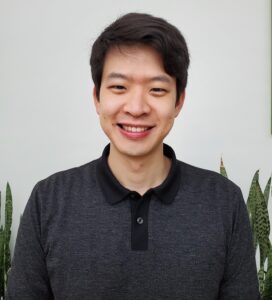 Human tissue, which is inherently three-dimensional (3D), is traditionally examined through standard-of-care histopathology as limited two-dimensional (2D) cross sections that can poorly represent the tissue due to sampling bias. To holistically characterize 3D histomorphology, 3D imaging modalities have been developed, but clinical translation is hampered by the complex and time-consuming requirements for manual evaluation, as well as the current lack of computational platforms to distill clinical insights from these large, high-resolution datasets. We present a deep learning model for processing tissue volumes and predicting patient outcomes with weak supervision. Recurrence risk-stratification models were trained with archived prostate cancer specimens imaged with open-top light-sheet microscopy or microcomputed tomography. By comprehensively capturing 3D morphologies, 3D block-based prognostication achieves superior performance to traditional 2D slice-based approaches, including existing clinical/histopathological baselines. Incorporating larger tissue volumes is shown to improve prognostic accuracy. This framework offers a promising direction for clinical decision support and 3D biomarker discovery, with the potential to further catalyze the growth of 3D spatial biology techniques for clinical applications.
Human tissue, which is inherently three-dimensional (3D), is traditionally examined through standard-of-care histopathology as limited two-dimensional (2D) cross sections that can poorly represent the tissue due to sampling bias. To holistically characterize 3D histomorphology, 3D imaging modalities have been developed, but clinical translation is hampered by the complex and time-consuming requirements for manual evaluation, as well as the current lack of computational platforms to distill clinical insights from these large, high-resolution datasets. We present a deep learning model for processing tissue volumes and predicting patient outcomes with weak supervision. Recurrence risk-stratification models were trained with archived prostate cancer specimens imaged with open-top light-sheet microscopy or microcomputed tomography. By comprehensively capturing 3D morphologies, 3D block-based prognostication achieves superior performance to traditional 2D slice-based approaches, including existing clinical/histopathological baselines. Incorporating larger tissue volumes is shown to improve prognostic accuracy. This framework offers a promising direction for clinical decision support and 3D biomarker discovery, with the potential to further catalyze the growth of 3D spatial biology techniques for clinical applications.
Publication: Song AH et al., “Weakly supervised AI for efficient analysis of 3D pathology samples”, Cell (2024, In Press) Preprint
Speaker: Andrew H. Song, PhD
Affiliation: Brigham and Women’s Hospital, Harvard Medical School
Position: Research Fellow
Date: Monday, March 25, 2024
Time: 4:00PM-5:00PM ET
Zoom: https://partners.zoom.us/j/82163676866
Meeting ID: 821 6367 6866
In Person: VTC-2006b, Hale BTM 2nd Floor
Brigham and Women’s Hospital
60 Fenwood Rd, Boston 02115
Andrew is currently a postdoctoral research fellow at Brigham and Women’s Hospital and Harvard Medical School, working with Prof. Faisal Mahmood in the AI4Pathology group since early 2022. His current research focus is developing DL-based frameworks for 3D computational pathology, using images from diverse 3D imaging modalities. In his previous life, he received a Ph.D. from Massachusetts Institute of Technology (MIT) Electrical Engineering and Computer Science (EECS), co-advised by Prof. Emery N. Brown (MIT) and Prof. Demba Ba (Harvard), working at the intersection of computational neuroscience and statistical signal processing.